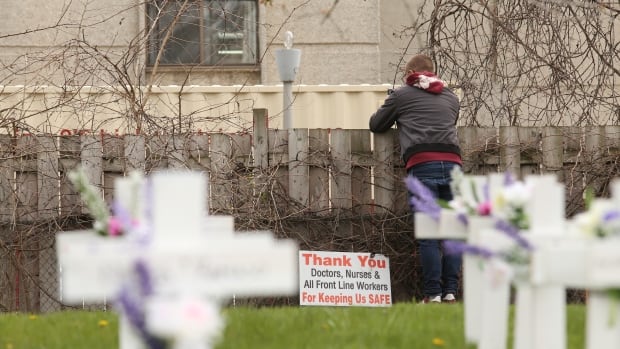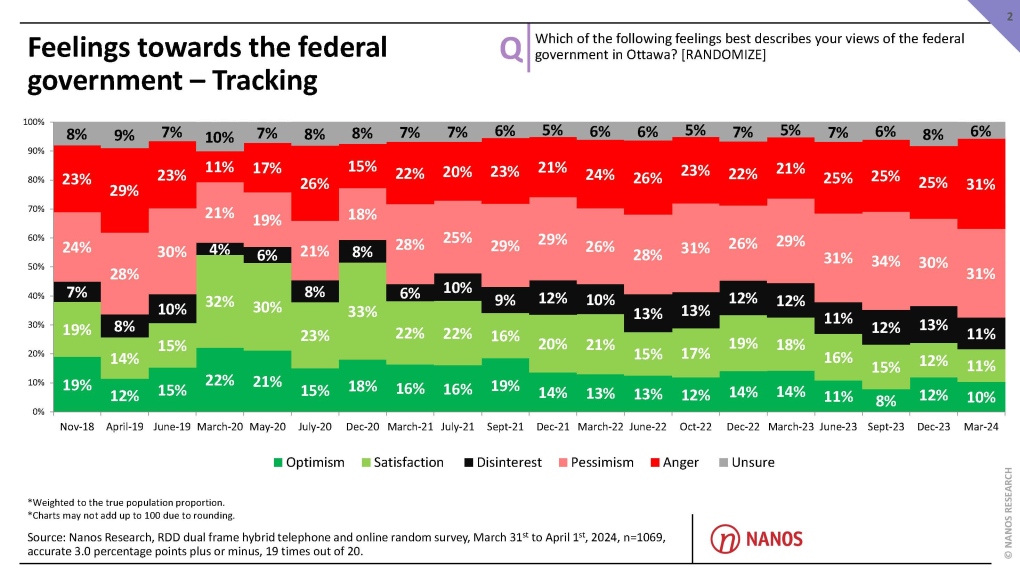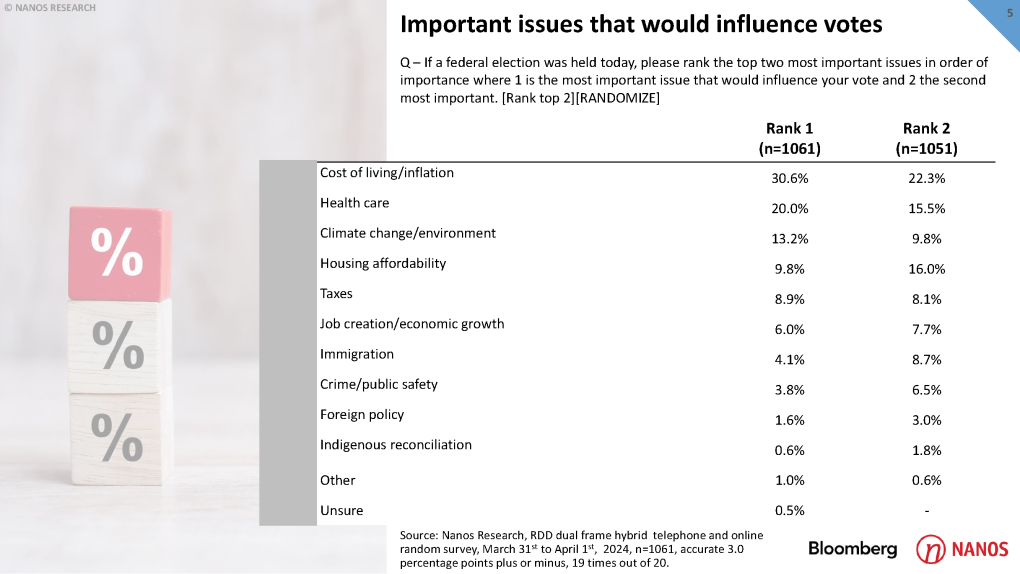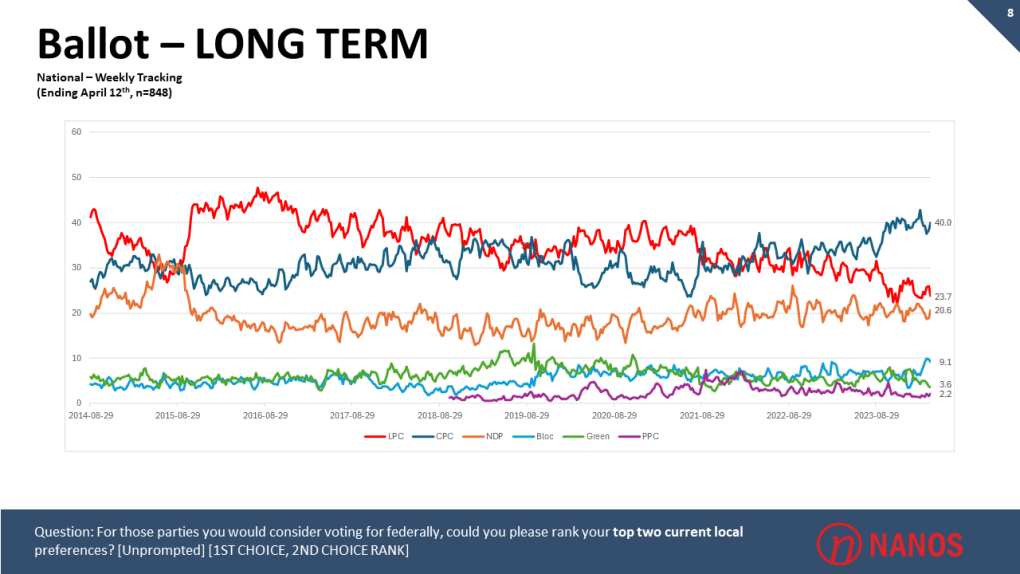Politics
Ontario's infection prevention team sidelined due to politics, commission hears – CBC.ca

Bureaucratic turf concerns prevented a highly trained team of infection prevention and control experts from helping Ontario long-term care homes in the early days of the COVID-19 pandemic, an independent commission has heard.
Dr. Gary Garber, the former medical director of infection prevention and control at Public Health Ontario, testified last week that his department was asked to maintain a “low profile” in order to avoid being “subsumed” by the newly created Ontario Health.
The reorganization, which the province said would modernize the health-care system and save millions of dollars, occurred on Jan. 22, 2020. The next day, a Toronto hospital admitted the first patient in Canada with the novel coronavirus.
In March, when a growing number of long-term care homes in the province were reporting COVID-19 outbreaks, Garber said 25 to 30 highly trained experts from Public Health Ontario watched from the sidelines.
“At the time, I was explaining it to people that COVID really was the IPAC (infection prevention and control) Olympics, that we had people who had been training for years,” Garber told the Long-Term Care COVID-19 Commission.
Instead, he said, the team was told not to get involved.
“We were basically told, ‘No, we don’t have the bandwidth for that. No, we can’t do that. No, it’s … the health unit’s responsibility to do that.”
Public Health Ontario said in a statement to The Canadian Press that it did not prohibit its infection prevention specialists from going into nursing homes, but it noted that “with a small team at PHO, it was not possible to meet every request.”
The commission has heard about numerous failures in infection prevention and control in nursing homes in the pandemic’s first wave, from not isolating sick residents from healthy ones to the lack, or misuse, of personal protective equipment.
In its first set of interim recommendations to the Minister of Long-Term Care on Oct. 23, 2020, the commission said major improvements in infection prevention and control were needed. It also said inspections teams should be sent in to nursing homes immediately to evaluate and improve IPAC protocols.
Garber said the infection prevention and control experts were finally allowed to help out the homes in late April.
He said one of his most frustrating moments came in March when he was on the line with a nursing home that had reported only a couple of COVID-19 cases.
“Can you cohort? Can you move the sick people? Can you take the ones you know have COVID in one place, the sick people in another and separate them from the rest?” Garber recalled asking the home, which he did not name.
“And the answer I was told was no. And it was the one time — maybe one of the few times in my career that I just felt helpless because I just knew what was going to happen.”
He said about 90 per cent of the residents in that home became infected with COVID-19.
The commission is investigating how the novel coronavirus spread in the long-term care system and will submit its final report on April 30, 2021.
Hearings are not open to the public, but transcripts of testimony are posted online days or weeks later.
Politics
Politics Briefing: Labour leader targets Poilievre, calls him 'anti-worker politician' – The Globe and Mail

Hello,
Pierre Poilievre is a fraud when it comes to empowering workers, says the president of Canada’s largest labour organization.
Bea Bruske, president of the Canadian Labour Congress, targeted the federal Conservative Leader in a speech in Ottawa today as members of the labour movement met to develop a strategic approach to the next federal election, scheduled for October, 2025.
“Whatever he claims today, Mr. Poilievre has a consistent 20-year record as an anti-worker politician,” said Bruske, whose congress represents more than three million workers.
She rhetorically asked whether the former federal cabinet minister has ever walked a picket line, or supported laws to strengthen workers’ voices.
“Mr. Poilievre sure is fighting hard to get himself power, but he’s never fought for worker power,” she said.
“We must do everything in our power to expose Pierre Poilievre as the fraud that he is.”
The Conservative Leader, whose party is running ahead of its rivals in public-opinion polls, has declared himself a champion of “the common people,” and been courting the working class as he works to build support.
Mr. Poilievre’s office today pushed back on the arguments against him.
Sebastian Skamski, media-operations director, said Mr. Poilievre, unlike other federal leaders, is connecting with workers.
In a statement, Skamski said NDP Leader Jagmeet Singh has sold out working Canadians by co-operating with the federal Liberal government, whose policies have created challenges for Canadian workers with punishing taxes and inflation.
“Pierre Poilievre is the one listening and speaking to workers on shop floors and in union halls from coast to coast to coast,” said Mr. Skamski.
Prime Minister Justin Trudeau and Mr. Singh are scheduled to speak to the gathering today. Mr. Poilievre was not invited to speak.
Asked during a post-speech news conference about the Conservative Leader’s absence, Bruske said the gathering is focused on worker issues, and Poilievre’s record as an MP and in government shows he has voted against rights, benefits and wage increases for workers.
“We want to make inroads with politicians that will consistently stand up for workers, and consistently engage with us,” she said.
This is the daily Politics Briefing newsletter, written by Ian Bailey. It is available exclusively to our digital subscribers. If you’re reading this on the web, subscribers can sign up for the Politics newsletter and more than 20 others on our newsletter signup page. Have any feedback? Let us know what you think.
TODAY’S HEADLINES
Pierre Poilievre’s top adviser not yet contacted in Lobbying Commissioner probe: The federal Lobbying Commissioner has yet to be in touch with Jenni Byrne as the watchdog probes allegations of inappropriate lobbying by staff working both in Byrne’s firm and a second one operating out of her office.
Métis groups will trudge on toward self-government as bill faces another setback: Métis organizations in Ontario and Alberta say they’ll stay on the path toward self-government, despite the uncertain future of a contentious bill meant to do just that.
Liberals buck global trend in ‘doubling down’ on foreign aid, as sector urges G7 push: The federal government pledged in its budget this week to increase humanitarian aid by $150-million in the current fiscal year and $200-million the following year.
Former B.C. finance minister running for the federal Conservatives: Mike de Jong says he will look to represent the Conservatives in Abbotsford-South Langley, which is being created out of part of the Abbotsford riding now held by departing Tory MP Ed Fast.
Ottawa’s new EV tax credit raises hope of big new Honda investment: The proposed measure would provide companies with a 10-per-cent rebate on the costs of constructing new buildings to be used in the electric-vehicle supply chain. Story here.
Sophie Grégoire Trudeau embraces uncertainty in new memoir, Closer Together: “I’m a continuous, curious, emotional adventurer and explorer of life and relationships,” Grégoire Trudeau told The Globe and Mail during a recent interview. “I’ve always been curious and interested and fascinated by human contact.”
TODAY’S POLITICAL QUOTES
“Sometimes you’re in a situation. You just can’t win. You say one thing. You get one community upset. You say another. You get another community upset.” – Ontario Premier Doug Ford, at a news conference in Oakville today, commenting on the Ontario legislature Speaker banning the wearing in the House of the traditional keffiyeh scarf. Ford opposes the ban, but it was upheld after the news conference in the provincial legislature.
“No, I plan to be a candidate in the next election under Prime Minister Trudeau’s leadership. I’m very happy. I’m excited about that. I’m focused on the responsibilities he gave me. It’s a big job. I’m enjoying it and I’m optimistic that our team and the Prime Minister will make the case to Canadians as to why we should be re-elected.” – Public Safety Minister Dominic LeBlanc, before Question Period today, on whether he is interested in the federal Liberal leadership, and succeeding Justin Trudeau as prime minister.
THIS AND THAT
Today in the Commons: Projected Order of Business at the House of Commons, April. 18, accessible here.
Deputy Prime Minister’s Day: Private meetings in Burlington, Ont., then Chrystia Freeland toured a manufacturing facility, discussed the federal budget and took media questions. Freeland then travelled to Washington, D.C., for spring meetings of the International Monetary Fund and the World Bank Group. Freeland also attended a meeting of the Five Eyes Finance Ministers hosted by U.S. Treasury Secretary Janet Yellen, and held a Canada-Ukraine working dinner on mobilizing Russian assets in support of Ukraine.
Ministers on the Road: Foreign Affairs Minister Mélanie Joly is on the Italian island of Capri for the G7 foreign ministers’ meeting. Heritage Minister Pascale St-Onge, in the Quebec town of Farnham, made an economic announcement, then held a brief discussion with agricultural workers and took media questions. Privy Council President Harjit Sajjan made a federal budget announcement in the Ontario city of Welland. Families Minister Jenna Sudds made an economic announcement in the Ontario city of Belleville.
Commons Committee Highlights: Treasury Board President Anita Anand appeared before the public-accounts committee on the auditor-general’s report on the ArriveCan app, and Karen Hogan, Auditor-General of Canada, later appeared on government spending. Crown-Indigenous Relations Minister Gary Anandasangaree appears before the status-of-women committee on the Red Dress Alert. Competition Bureau Commissioner Matthew Boswell and Yves Giroux, the Parliamentary Budget Officer, appeared before the finance committee on Bill C-59. Former Prince Edward Island premier Robert Ghiz, now the president and chief executive officer of the Canadian Telecommunications Association, is among the witnesses appearing before the human-resources committee on Bill C-58, An act to amend the Canada Labour Code. Caroline Maynard, Canada’s Information Commissioner, appears before the access-to-information committee on government spending. Michel Patenaude, chief inspector at the Sûreté du Québec, appeared before the public-safety committee on car thefts in Canada.
In Ottawa: Governor-General Mary Simon presented the Governor-General’s Literary Awards during a ceremony at Rideau Hall, and, in the evening, was scheduled to speak at the 2024 Indspire Awards to honour Indigenous professionals and youth.
PRIME MINISTER’S DAY
Justin Trudeau met with Ottawa Mayor Mark Sutcliffe at city hall. Sutcliffe later said it was the first time a sitting prime minister has visited city hall for a meeting with the mayor. Later, Trudeau delivered remarks to a Canada council meeting of the Canadian Labour Congress.
LEADERS
Bloc Québécois Leader Yves-François Blanchet held a media scrum at the House of Commons ahead of Question Period.
Conservative Leader Pierre Poilievre attends a party fundraising event at a private residence in Mississauga.
Green Party Leader Elizabeth May attended the House of Commons.
NDP Leader Jagmeet Singh, in Ottawa, met with Saskatchewan’s NDP Leader, Carla Beck, and, later, Ken Price, the chief of the K’ómoks First Nation,. In the afternoon, he delivered a speech to a Canadian Labour Congress Canadian council meeting.
THE DECIBEL
On today’s edition of The Globe and Mail podcast, Sanjay Ruparelia, an associate professor at Toronto Metropolitan University and Jarislowsky Democracy Chair, explains why India’s elections matter for democracy – and the balance of power for the rest of the world. The Decibel is here.
PUBLIC OPINION
Declining trust in federal and provincial governments: A new survey finds a growing proportion of Canadians do not trust the federal or provincial governments to make decisions on health care, climate change, the economy and immigration.
OPINION
On Haida Gwaii, an island of change for Indigenous land talks
“For more than a century, the Haida Nation has disputed the Crown’s dominion over the land, air and waters of Haida Gwaii, a lush archipelago roughly 150 kilometres off the coast of British Columbia. More than 20 years ago, the First Nation went to the Supreme Court of Canada with a lawsuit that says the islands belong to the Haida, part of a wider legal and political effort to resolve scores of land claims in the province. That case has been grinding toward a conclusion that the B.C. government was increasingly convinced would end in a Haida victory.” – The Globe and Mail Editorial Board.
The RCMP raid the home of ArriveCan contractor as Parliament scolds
“The last time someone was called before the bar of the House of Commons to answer MPs’ inquiries, it was to demand that a man named R.C. Miller explain how his company got government contracts to supply lights, burners and bristle brushes for lighthouses. That was 1913. On Wednesday, Kristian Firth, the managing partner of GCStrategies, one of the key contractors on the federal government’s ArriveCan app, was called to answer MPs’ queries. Inside the Commons, it felt like something from another century.” – Campbell Clark
First Nations peoples have lost confidence in Thunder Bay’s police force
“Thunder Bay has become ground zero for human-rights violations against Indigenous Peoples in Canada. Too many sudden and suspicious deaths of Indigenous Peoples have not been investigated properly. There have been too many reports on what is wrong with policing in the city – including ones by former chair of the Truth and Reconciliation Commission Murray Sinclair and former Toronto Police board chair Alok Mukherjee, and another one called “Broken Trust,” in which the Office of the Independent Police Review Director said the Thunder Bay Police Service (TBPS) was guilty of “systemic racism” in 2018. – Tanya Talaga.
The failure of Canada’s health care system is a disgrace – and a deadly one
“What can be said about Canada’s health care system that hasn’t been said countless times over, as we watch more and more people suffer and die as they wait for baseline standards of care? Despite our delusions, we don’t have “world-class” health care, as our Prime Minister has said; we don’t even have universal health care. What we have is health care if you’re lucky, or well connected, or if you happen to have a heart attack on a day when your closest ER is merely overcapacity as usual, and not stuffed to the point of incapacitation.” – Robyn Urback.
Got a news tip that you’d like us to look into? E-mail us at tips@globeandmail.com. Need to share documents securely? Reach out via SecureDrop.
Politics
GOP strategist reacts to Trump’s ‘unconventional’ request – CNN


GOP strategist reacts to Trump’s ‘unconventional’ request
Donald Trump’s campaign is asking Republican candidates and committees using the former president’s name and likeness to fundraise to give at least 5% of what they raise to the campaign, according to a letter obtained by CNN. CNN’s Steve Contorno and Republican strategist Rina Shah weigh in.
Politics
Anger toward federal government at 6-year high: Nanos survey – CTV News


Most Canadians in March reported feeling angry or pessimistic towards the federal government than at any point in the last six years, according to a survey by Nanos Research.
Nanos has been measuring Canadians’ feelings of optimism, satisfaction, disinterest, anger, pessimism and uncertainty toward the federal government since November 2018.
The latest survey found that optimism had crept up slightly to 10 per cent since hitting an all-time low of eight per cent in September 2023.
However, 62 per cent of Canadians said they feel either pessimistic or angry, with respondents equally split between the two sentiments.
(Nanos Research)
“What we’ve seen is the anger quotient has hit a new record,” Nik Nanos, CTV’s official pollster and Nanos Research founder, said in an interview with CTV News’ Trend Line on Wednesday.
Only 11 per cent of Canadians felt satisfied, while another 11 per cent said they were disinterested.
Past survey results show anger toward the federal government has increased or held steady across the country since March 2023, while satisfaction has gradually declined.
Will the budget move the needle?
Since the survey was conducted before the federal government released its 2024 budget, there’s a chance the anger and pessimism of March could subside a little by the time Nanos takes the public’s temperature again. They could also stick.
The five most important issues to Canadians right now that would influence votes, according to another recent Nanos survey conducted for Bloomberg, include inflation and the cost of living, health care, climate change and the environment, housing affordability and taxes.


With this year’s budget, the federal government pledged $52.9 billion in new spending while promising to maintain the 2023-24 federal deficit at $40.1 billion. The federal deficit is projected to be $39.8 billion in 2024-25.
The budget includes plans to boost new housing stock, roll out a national disability benefit, introduce carbon rebates for small businesses and increase taxes on Canada’s top-earners.
However, advocacy groups have complained it doesn’t do enough to address climate change, or support First Nations communities and Canadians with disabilities.
“Canada is poised for another disastrous wildfire season, but this budget fails to give the climate crisis the attention it urgently deserves,” Keith Brooks, program director for Environmental Defence, wrote in a statement on the organization’s website.
Meanwhile, when it comes to a promise to close what the Assembly of First Nations says is a sprawling Indigenous infrastructure gap, the budget falls short by more than $420 billion. And while advocacy groups have praised the impending roll-out of the Canada Disability Benefit, organizations like March of Dimes Canada and Daily Bread Food Bank say the estimated maximum benefit of $200 per month per recipient won’t be enough to lift Canadians with disabilities out of poverty.
According to Nanos, if Wednesday’s budget announcement isn’t enough to restore the federal government’s favour, no amount of spending will do the trick.
“If the Liberal numbers don’t move up after this, perhaps the listening lesson for the Liberals will be (that) spending is not the political solution for them to break this trend line,” Nanos said. “It’ll have to be something else.”
Conservatives in ‘majority territory’
While the Liberal party waits to see what kind of effect its budget will have on voters, the Conservatives are enjoying a clear lead when it comes to ballot tracking.


“Any way you cut it right now, the Conservatives are in the driver’s seat,” Nanos said. “They’re in majority territory.”
According to Nanos Research ballot tracking from the week ending April 12, the Conservatives are the top choice for 40 per cent of respondents, the Liberals for 23.7 per cent and the NDP for 20.6 per cent.
Whether the Liberals or the Conservatives form the next government will come down, partly, to whether voters believe more government spending is, or isn’t, the key to helping working Canadians, Nanos said.
“Both of the parties are fighting for working Canadians … and we have two competing visions for that. For the Liberals, it’s about putting government support into their hands and creating social programs to support Canadians,” he said.
“For the Conservatives, it’s very different. It’s about reducing the size of government (and) reducing taxes.”
Watch the full episode of Trend Line in our video player at the top of this article. You can also listen in our audio player below, or wherever you get your podcasts. The next episode comes out Wednesday, May 1.
Methodology
Nanos conducted an RDD dual frame (land- and cell-lines) hybrid telephone and online random survey of 1,069 Canadians, 18 years of age or older, between March 31 and April 1, 2024, as part of an omnibus survey. Participants were randomly recruited by telephone using live agents and administered a survey online. The sample included both land- and cell-lines across Canada. The results were statistically checked and weighted by age and gender using the latest census information and the sample is geographically stratified to be representative of Canada. The margin of error for this survey is ±3.0 percentage points, 19 times out of 20.
With files from The Canadian Press, CTV News Senior Digital Parliamentary Reporter Rachel Aiello and CTV News Parliamentary Bureau Writer, Producer Spencer Van Dyke
-



 Science8 hours ago
Science8 hours agoJeremy Hansen – The Canadian Encyclopedia
-



 Investment8 hours ago
Investment8 hours agoUK Mulls New Curbs on Outbound Investment Over Security Risks – BNN Bloomberg
-



 Tech8 hours ago
Tech8 hours agoSave $700 Off This 4K Projector at Amazon While You Still Can – CNET
-



 Tech7 hours ago
Tech7 hours ago'Kingdom Come: Deliverance II' Revealed In Epic New Trailer And It Looks Incredible – Forbes
-



 Sports7 hours ago
Sports7 hours agoAuston Matthews denied 70th goal as depleted Leafs lose last regular-season game – Toronto Sun
-
Real eState7 hours ago
Sick of Your Blue State? These Real Estate Agents Have Just the Place for You. – The New York Times
-



 Health22 hours ago
Health22 hours agoSupervised consumption sites urgently needed, says study – Sudbury.com
-
News22 hours ago
Canada's 2024 budget announces 'halal mortgages'. Here's what to know – National Post










